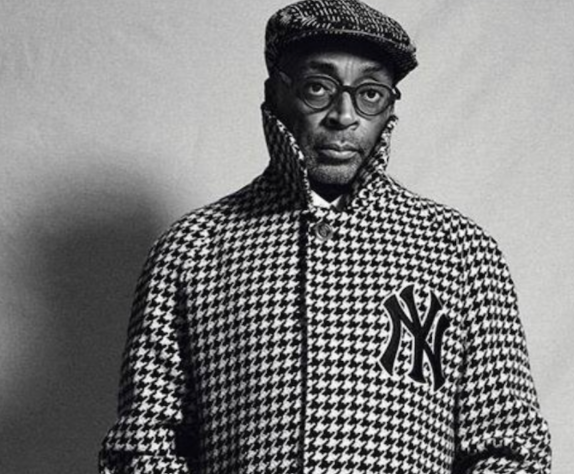As part of his promotional blitzkrieg for his twenty-fourth feature, Da 5 Bloods, auteur Spike Lee was interviewed for WOR 710, an NY-based radio station, during which, among the topics discussed happened to be Woody Allen. A fellow auteur whose name just won’t die in the public’s mind as part of the legion of old white men guilty of sexual misconduct. In Allen’s case, that alle(n)gation comes from his adopted daughter, Dylan Farrow, who has accused him of molestation when she was a child of seven years old. While few have dared to remain by Allen’s side (save for Diane Keaton and Scarlett Johansson, at far greater risk for doing so than the former), Lee seemed assured in his statement, “I’d just like to say Woody Allen is a great, great filmmaker, and this cancel thing–it’s not just Woody… And I think that when we look back on it we’re going to see that, short of killing somebody, I don’t know if you can just erase somebody like they never existed.”
This assessment, ironically, comes at a time when statues of historical figures despised for their racism are being systematically (not to be confused with “systemically”) erased via defacement and/or being tossed into the river by outraged protesters seeking to find some form of reparations for the atrocities that have been committed toward black people throughout history. The symbolic significance of these obliterations seeming to be enough for people to believe that it will stamp out racism altogether, along with the statue itself.
As for Allen, he, too, is a symbol of something now. Somehow the spokesperson for white men who can’t “let go” in the face of continued “cancellation” (case in point, the fact that he managed to get his memoir, Apropos of Nothing, published after Hachette pulled it from its own roster). Yet one would do well to remember that, at the very least, New York, home to alleged “progressivism” and open-mindedness (so long as you believe what you’re supposed to), previously heralded him as one of their great cultural icons. Lee, too, is considered part of that pantheon despite being from Atlanta. Having made Brooklyn his adopted home, Lee’s work has often focused on the racial tensions that exist within this milieu. Of course, the New York of Allen’s films is an entirely alternate one, awash in the white Manhattan resident’s ability to delight and wallow in his own neuroticism–a luxury few black people have ever had. Nonetheless, Lee, orbiting in the same New York film community circles as Allen over the years, counts him as a friend despite their ostensible divide.
Indeed, Lee even stated on the radio show in question, “Woody’s a friend of mine.” Guess not though… at least not when you’ve got a movie to promote. For no sooner had he uttered these defending statements about Allen (or at least his breadth of work) then he took to Twitter to publicly renege with, “I Deeply Apologize. My Words Were WRONG. I Do Not And Will Not Tolerate Sexual Harassment, Assault Or Violence. Such Treatment Causes Real Damage That Can’t Be Minimized.-Truly, Spike Lee.” Saying his words were “WRONG,” as though brainwashed by one of the bodysnatchers readily dispensed by those in control of the media, was perhaps the most appalling part of the knee-jerk apology. Because now more than ever, the public has never made it clearer that there is a “right” way and a “wrong” way of thinking–a notion in and of itself that defeats the entire purpose of thinking at all.
While Lee might have scandalized himself in defending a white man accused of sexually predatory behavior at a time when his own community is dealing with the continued fallout of violence and abuse at the hands of l’homme blanc, he is usually not one to back down from his true opinion (notoriously getting in publicized spats with the likes of Charlton Heston and Clint Eastwood). And that genuinely makes one already aware of the answer to the question: is anyone allowed to say what they actually feel anymore? Or is it all required to be pre-screened by the motherfucking Thought Police?






















